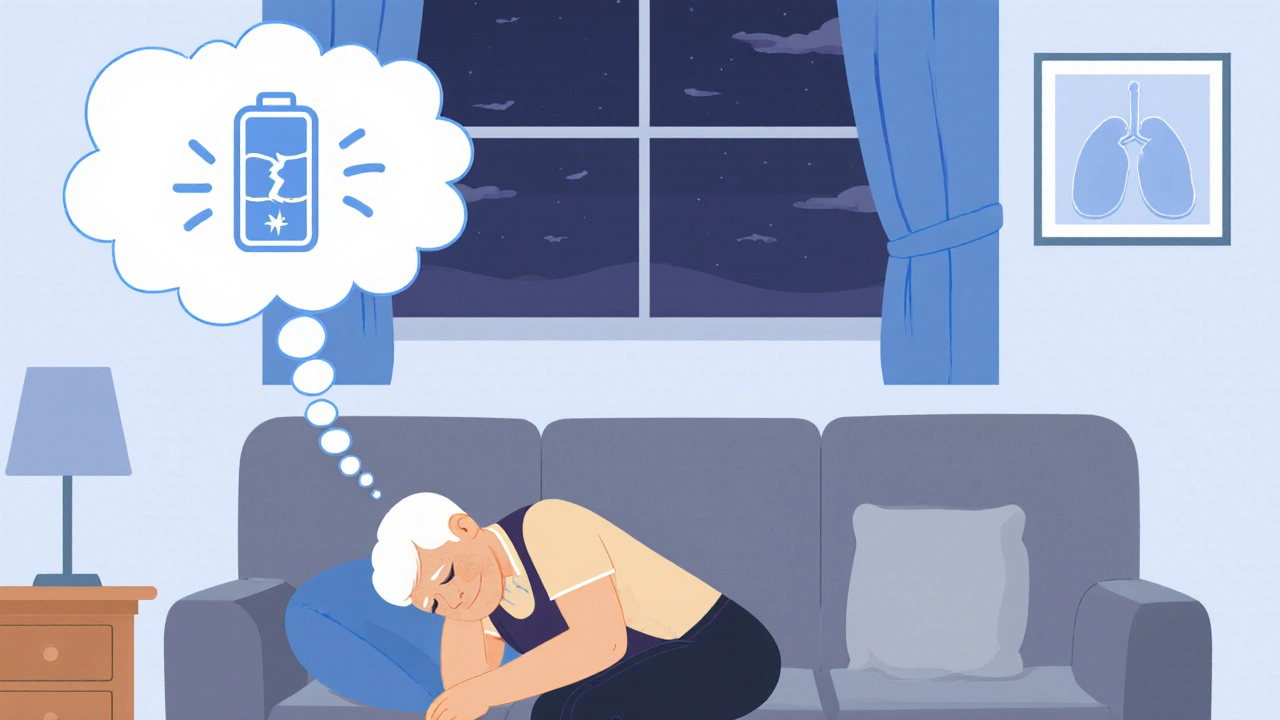Tiotropium Bromide: What It Is, How It Works, and What You Need to Know
When you’re struggling to breathe because of COPD or chronic asthma, tiotropium bromide, a long-acting anticholinergic bronchodilator used to open airways in chronic lung diseases. Also known as Spiriva, it’s not a quick fix like albuterol—it’s a daily maintenance tool that helps keep your lungs open over 24 hours. Unlike short-acting inhalers that give you immediate relief during a flare-up, tiotropium works quietly in the background, reducing the number of bad days you have each month.
This medication is a cornerstone in managing COPD, a group of lung conditions including emphysema and chronic bronchitis that make breathing difficult. It’s often prescribed when other treatments like short-acting beta-agonists aren’t enough. Doctors pair it with inhaled corticosteroids or other long-acting bronchodilators like formoterol to get better control. It doesn’t cure anything, but it stops the cycle of worsening symptoms—fewer hospital visits, less coughing at night, and more walks around the block.
It’s also used off-label for some severe asthma, a condition where airways become inflamed and tighten, often triggered by allergens or exercise, especially when patients don’t respond well to standard inhalers. The key is consistency: you take it once a day, every day, even when you feel fine. Missing doses can undo the progress. Side effects are usually mild—dry mouth, sore throat, or occasional blurred vision—but if you feel your heart racing or have trouble urinating, talk to your doctor.
People often ask how it compares to other inhalers. Tiotropium isn’t the fastest, but it lasts the longest. It’s not a steroid, so it doesn’t carry the same risk of oral thrush or bone thinning. But it’s not for everyone—people with glaucoma or enlarged prostate need to be cautious. You won’t find it in over-the-counter stores. It requires a prescription, and the inhaler device (HandiHaler or Respimat) needs to be used correctly to work at all.
What you’ll find in the posts below isn’t just drug facts—it’s real-world context. You’ll see how tiotropium stacks up against other respiratory meds, what patients actually experience on it, how it interacts with common drugs like diuretics or antidepressants, and why some people switch to alternatives. There’s no fluff. Just clear, practical info from people who’ve lived with it and doctors who’ve prescribed it. Whether you’re just starting out or have been on it for years, there’s something here that’ll help you breathe easier.
Explore how tiotropium bromide can reduce fatigue and boost energy in COPD patients, backed by studies, practical tips, and safety guidance.
Oct, 19 2025

